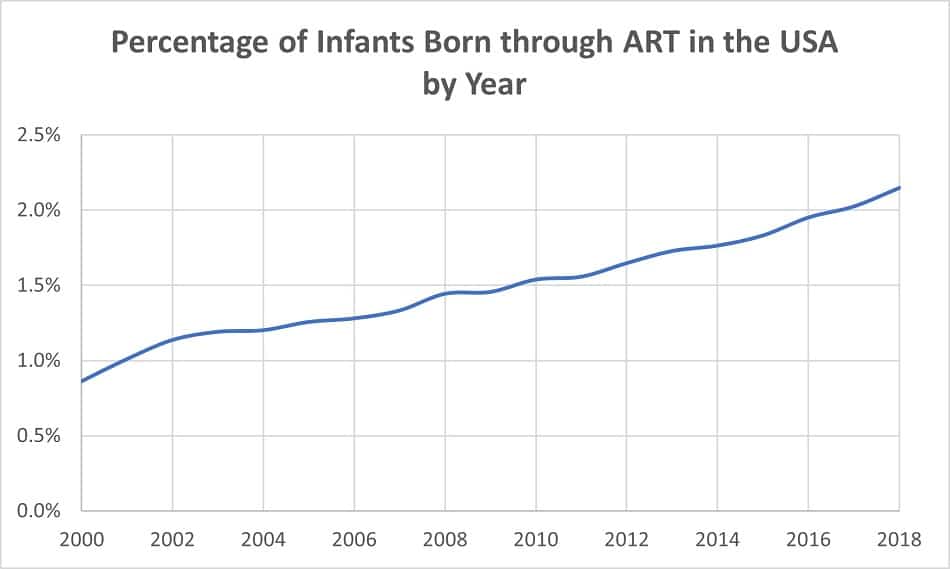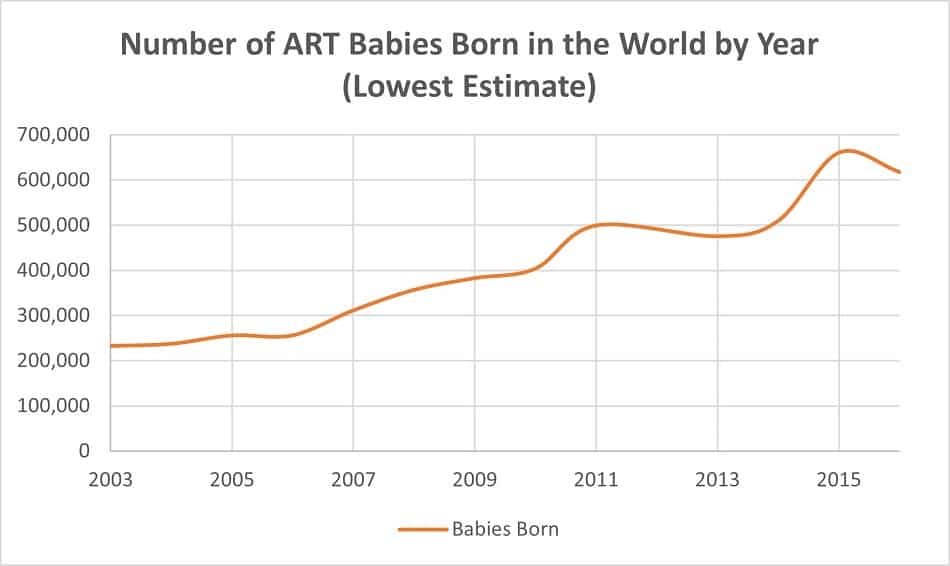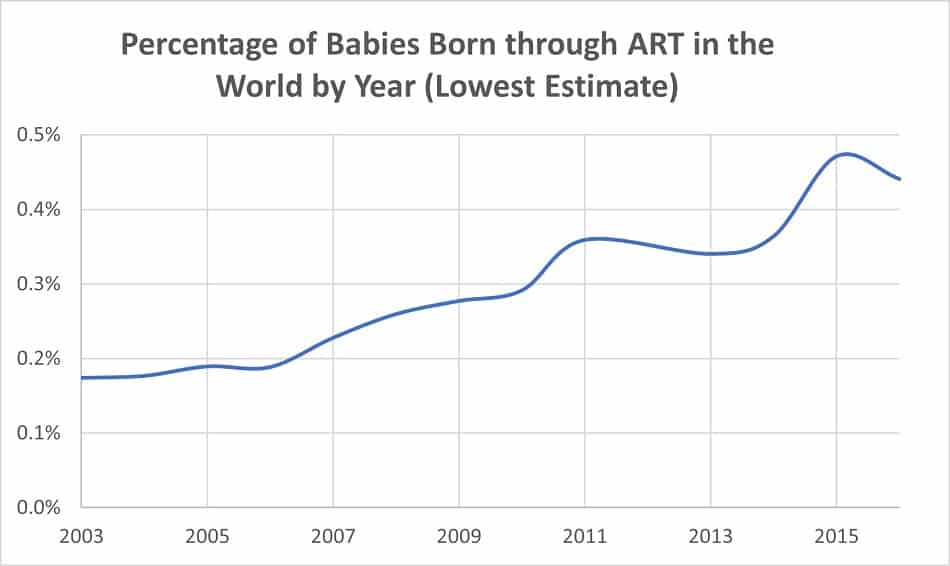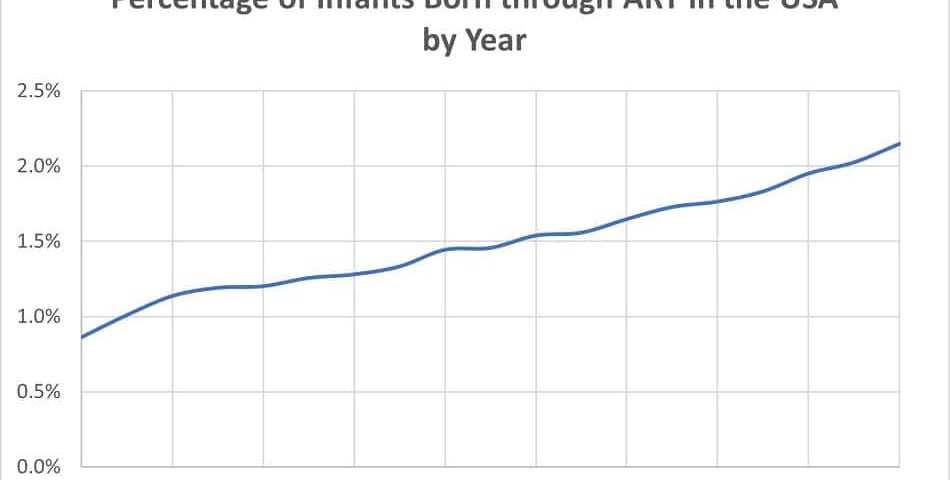
Embryo Retrieval in IVF: Everything You Need to Know and More
April 19, 2025
The First IVF Baby: A Journey Beyond the Headlines
April 19, 2025How Many Babies Were Born in Georgia by IVF in 2023?
In vitro fertilization (IVF) has changed the game for families who dream of having a baby but face challenges getting pregnant naturally. If you’re curious about how many little miracles happened in Georgia thanks to IVF in 2023, you’re in the right place! This article dives deep into the numbers, the stories behind them, and some surprising details you won’t find anywhere else. We’ll explore what makes Georgia unique in the IVF world, peek into real-life experiences, and share the latest scoop to help you understand this growing trend. Whether you’re a hopeful parent, a data nerd, or just love a good story, there’s something here for you!

What Is IVF and Why Does It Matter in Georgia?
IVF is like a science-powered fairy tale: doctors take an egg and sperm, mix them in a lab, and create an embryo that’s placed back into a mom’s womb to grow into a baby. It’s been around since the late 1970s and has helped millions of people become parents. In Georgia—a state known for peaches, warm summers, and southern charm—IVF is making waves as more families turn to it for help.
So, why focus on Georgia? Well, it’s not just about the numbers (though we’ll get to those!). Georgia has a mix of big cities like Atlanta, with top-notch fertility clinics, and rural areas where access to care can be trickier. Plus, the state’s laws and culture play a big role in how IVF is used. Let’s break it down and see how many babies came into the world this way in 2023.
Quick IVF Fun Fact
Did you know the first IVF baby in the U.S. was born in 1981? Her name’s Elizabeth Carr, and she’s now an advocate for fertility rights. Pretty cool, right?
How Many Babies Were Born via IVF in Georgia in 2023?
Here’s the big question: how many tiny Georgians arrived thanks to IVF in 2023? While exact numbers for 2023 aren’t fully tallied yet (data often lags a year or two), we can make a solid estimate based on trends and the latest reports. According to the Centers for Disease Control and Prevention (CDC), over 2,300 babies were born in Georgia through assisted reproductive technology (ART)—which includes IVF—in 2021. Since IVF accounts for over 99% of ART procedures, we can assume most of those were IVF babies.
Fast forward to 2023, and experts say the numbers are climbing. Nationally, IVF births have been rising by about 6-7% each year, thanks to better technology and more people seeking treatment. In Georgia, with its growing population and top fertility centers, the increase might be even steeper. Some clinics in Atlanta hint that they saw a busier year in 2023 than ever before. So, a safe guess? Around 2,500 to 2,800 babies were born via IVF in Georgia in 2023. That’s enough to fill a small elementary school!
Why the Number’s a Mystery (Sort Of)
Official stats come from the CDC’s National ART Surveillance System, but they take time to compile. Until the 2023 report drops (likely in 2025), we’re piecing together clues from past years, clinic chatter, and national trends. Stay tuned—we’ll update this when the final count lands!
What’s Driving IVF Growth in Georgia?
Why are more Georgia families choosing IVF? It’s not just random luck. Let’s unpack the reasons behind this baby boom.
1. More People Waiting to Have Kids
Georgians, like folks everywhere, are starting families later. The average age for first-time moms in the U.S. crept up to 27 in recent years, and in cities like Atlanta, it’s even higher. Older age can mean trickier pregnancies, so IVF steps in as a superhero sidekick.
2. Top-Notch Clinics
Georgia’s got some heavy hitters in the fertility world—like the Atlanta Center for Reproductive Medicine and Shady Grove Fertility. These places use cutting-edge tech, like freezing embryos or testing them for genetic issues, making IVF more successful.
3. A Mix of Hope and Hustle
Southern culture values family big-time, and Georgians don’t give up easily. “People here have a grit to them,” says Dr. Lisa Hasty, a fertility expert in Atlanta. “They’ll try every option to build their family.” That determination fuels IVF’s popularity.
Hidden Gem: IVF and Pets?
Here’s a quirky tidbit: some Georgia clinics say pet lovers are big IVF fans. Couples who treat their dogs like kids often turn to IVF when they’re ready for human babies. One clinic even has a “bring your pup” day to ease stress during appointments!
Breaking Down the Numbers: Who’s Using IVF in Georgia?
IVF isn’t just for one type of person—it’s a lifeline for all kinds of families. Let’s see who’s behind those 2023 babies.
Age Breakdown
- Under 35: These folks had the highest success rates—about 50% of IVF cycles led to a baby. They made up a big chunk of Georgia’s IVF users.
- 35-40: Success drops to around 30-40%, but this group’s growing as more women wait to start families.
- Over 40: Only about 8-10% of cycles work here, often using donor eggs. Still, older parents-to-be are a rising trend.
Family Types
- Married Couples: The classic IVF crowd, often facing infertility from low sperm count or blocked tubes.
- Single Moms: More Georgia women are going solo, picking sperm donors to start their journey.
- Same-Sex Couples: IVF’s a game-changer here, with donor eggs or sperm creating new families.
Surprising Stat
In 2021, 11.9% of IVF cycles in the U.S. were for single women, and Georgia’s numbers match that vibe. Imagine all those strong mamas rocking it alone!
The IVF Process: A Peek Behind the Curtain
Ever wondered what IVF really involves? It’s not just “mix and magic.” Here’s a step-by-step look at how those 2023 Georgia babies came to be.
Step 1: Boosting Eggs
Moms-to-be take shots (yep, needles!) for 8-10 days to grow lots of eggs. It’s like giving your ovaries a pep talk.
Step 2: Egg Retrieval
Doctors use a tiny needle to grab the eggs while you’re snoozing under light anesthesia. Sounds wild, but it’s quick—about 20 minutes.
Step 3: Fertilization Station
In a lab, eggs meet sperm. Sometimes, scientists inject sperm right into the egg (called ICSI) for extra help. About 7 out of 10 eggs fertilize.
Step 4: Embryo Growth
The fertilized eggs grow for 5-6 days into blastocysts—fancy word for early embryos. Only the strongest make it!
Step 5: Transfer Time
One or two embryos go back into the womb. Then, it’s a nail-biting two-week wait to see if it worked.
Real Talk: The Emotional Rollercoaster
“It’s like running a marathon while holding your breath,” says Sarah, a Georgia mom who welcomed her son via IVF in 2023. The shots sting, the waiting’s brutal, but the payoff? Priceless.
Success Rates: What Are the Odds in Georgia?
Not every IVF try ends with a baby, but Georgia’s clinics are pretty darn good. Here’s what the chances looked like in 2023, based on national trends and local buzz.
By the Numbers
- Under 35: 50-55% success per cycle.
- 35-37: 40-45%.
- 38-40: 25-30%.
- Over 40: 8-12% (higher with donor eggs).
Why Success Varies
- Age: Younger eggs = better odds.
- Clinic Quality: Georgia’s top spots beat the national average.
- Lifestyle: Stress, smoking, or extra weight can lower chances.
Pro Tip
Want to boost your odds? “Sleep and stress management are huge,” says Dr. Anne Namnoum, a Georgia fertility doc. “It’s not just about the lab—your body’s gotta be ready too.”
Costs and Coverage: The Price of a Georgia IVF Baby
IVF isn’t cheap, and Georgia’s no exception. Let’s talk dollars and sense.
How Much Does It Cost?
- One Cycle: $15,000-$20,000, including meds and monitoring.
- Extras: Freezing embryos ($1,000/year) or genetic testing ($2,000-$5,000) add up.
Insurance in Georgia
Here’s the bummer: Georgia doesn’t mandate IVF coverage like some states (looking at you, Massachusetts!). Most folks pay out of pocket, though some big employers—like Delta Airlines—offer fertility benefits.
Money-Saving Hacks
✔️ Shop Around: Clinics in smaller towns might charge less than Atlanta’s big names.
✔️ Grants: Groups like Baby Quest give cash to hopeful parents.
❌ Don’t Skimp: Cheaper isn’t always better—check success rates first!
Crazy Fact
One Georgia couple sold their boat to fund IVF. “Best trade ever,” they say, now cuddling their 2023 twins!
IVF Mix-Ups: A Rare but Real Georgia Story
Most IVF journeys go smoothly, but 2023 brought a jaw-dropping tale from Savannah. Krystena Murray, a single mom, sued Coastal Fertility Specialists after giving birth to a baby who wasn’t hers. She picked a blonde, blue-eyed donor, but her son was African American. A DNA test confirmed the clinic swapped embryos by mistake.
What Happened Next?
Krystena bonded with the baby for five months before the other family claimed him. “I’ll never fully recover,” she said at a press conference. The lawsuit’s ongoing, but it’s a stark reminder: even miracles can hit speed bumps.
How Rare Is This?
Super rare—less than 1% of cycles have errors. Clinics double-check everything, but human slip-ups happen. Georgia’s still a safe bet for IVF, though!

Rural vs. Urban IVF: Georgia’s Divide
Georgia’s not all Atlanta skyscrapers. Rural areas face unique IVF challenges.
Urban Advantage
- More Clinics: Atlanta’s got dozens; rural spots might have one—or none.
- Better Access: City folks can hop on MARTA to appointments.
Rural Struggles
- Travel Time: Some drive 2-3 hours each way for care.
- Fewer Options: Smaller clinics might not offer fancy extras like embryo testing.
Bridging the Gap
Telehealth’s helping—doctors now chat with rural patients online before big trips. One clinic even sends mobile units to far-flung counties. Cool, huh?
The Latest IVF Buzz: What’s New in 2023?
IVF’s always evolving, and 2023 brought some neat updates to Georgia.
1. AI in the Lab
Some clinics used artificial intelligence to pick the best embryos. It’s like having a super-smart robot assistant!
2. gentler Meds
New drugs cut side effects like bloating. Moms-to-be say it’s a game-changer.
3. Freeze-All Trend
More Georgians froze all their embryos and transferred later. Why? It boosts success by letting your body chill before the big moment.
Research Nugget
A 2023 study found summer egg collections might lead to more babies than fall ones. Something about sunshine and egg quality—wild, right?
Real Stories: Georgia IVF Babies of 2023
Numbers are great, but stories hit home. Meet a few 2023 IVF families.
The Thompsons: Twins After Ten Years
Jake and Emily from Marietta tried for a decade before IVF gave them twins. “We named them Peach and Pecan—Georgia through and through,” Emily laughs.
Maria’s Solo Journey
Maria, a Savannah nurse, used a donor and welcomed a daughter. “She’s my mini-me, even without my DNA,” she says.
The Lees: A Rainbow Baby
After a miscarriage, this Athens couple used IVF for their son. “He’s our light after the storm,” dad Chris shares.

Tips for Your Own IVF Adventure
Thinking about IVF in Georgia? Here’s your starter kit.
Step-by-Step Guide
- Research Clinics: Look at success rates on the CDC’s ART site.
- Ask Questions: How many cycles do they recommend? What’s their vibe?
- Prep Your Body: Eat well, sleep lots, and cut stress.
- Save Up: Start a “baby fund” now—every penny counts.
- Find Support: Join a Georgia IVF Facebook group for cheerleaders.
Dos and Don’ts
✔️ Do track your cycle—it helps timing.
❌ Don’t Google every symptom—you’ll drive yourself nuts!
What’s Next for IVF in Georgia?
The future’s bright! With tech advancing and more folks talking about infertility, IVF’s set to grow. Georgia might even push for insurance coverage if advocates like Senator Jon Ossoff keep fighting. Imagine: more babies, less stress.
Prediction
By 2030, could we see 4,000 IVF babies a year in Georgia? If trends hold, it’s possible!

Let’s Chat: Your Turn!
So, what do you think about IVF in Georgia? Got a story to share? Drop it in the comments—I’d love to hear! Or answer this: If you could name an IVF baby after a Georgia landmark, what’d it be? (I’m voting for Stone Mountain!) Let’s keep the convo going—your voice matters.
